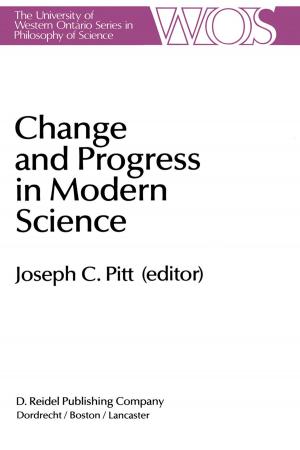Organic Farming, Prototype for Sustainable Agricultures
Nonfiction, Science & Nature, Science, Biological Sciences, Ecology, Technology, Agriculture & Animal Husbandry| Author: | ISBN: | 9789400779273 | |
| Publisher: | Springer Netherlands | Publication: | April 23, 2014 |
| Imprint: | Springer | Language: | English |
| Author: | |
| ISBN: | 9789400779273 |
| Publisher: | Springer Netherlands |
| Publication: | April 23, 2014 |
| Imprint: | Springer |
| Language: | English |
Stakeholders show a growing interest for organic food and farming (OF&F), which becomes a societal component. Rather than questioning whether OF&F outperforms conventional agriculture or not, the main question addressed in this book is how, and in what conditions, OF&F may be considered as a prototype towards sustainable agricultures. The book gathers 25 papers introduced in a first chapter. The first section investigates OF&F production processes and its capacity to benefit from the systems functioning to achieve higher self-sufficiency. The second one proposes an overview of organic performances providing commodities and public goods. The third one focuses on organics development pathways within agri-food systems and territories. As well as a strong theoretical component, this book provides an overview of the new challenges for research and development. It questions the benefits as well as knowledge gaps with a particular emphasis on bottlenecks and lock-in effects at various levels.
Stakeholders show a growing interest for organic food and farming (OF&F), which becomes a societal component. Rather than questioning whether OF&F outperforms conventional agriculture or not, the main question addressed in this book is how, and in what conditions, OF&F may be considered as a prototype towards sustainable agricultures. The book gathers 25 papers introduced in a first chapter. The first section investigates OF&F production processes and its capacity to benefit from the systems functioning to achieve higher self-sufficiency. The second one proposes an overview of organic performances providing commodities and public goods. The third one focuses on organics development pathways within agri-food systems and territories. As well as a strong theoretical component, this book provides an overview of the new challenges for research and development. It questions the benefits as well as knowledge gaps with a particular emphasis on bottlenecks and lock-in effects at various levels.















